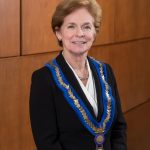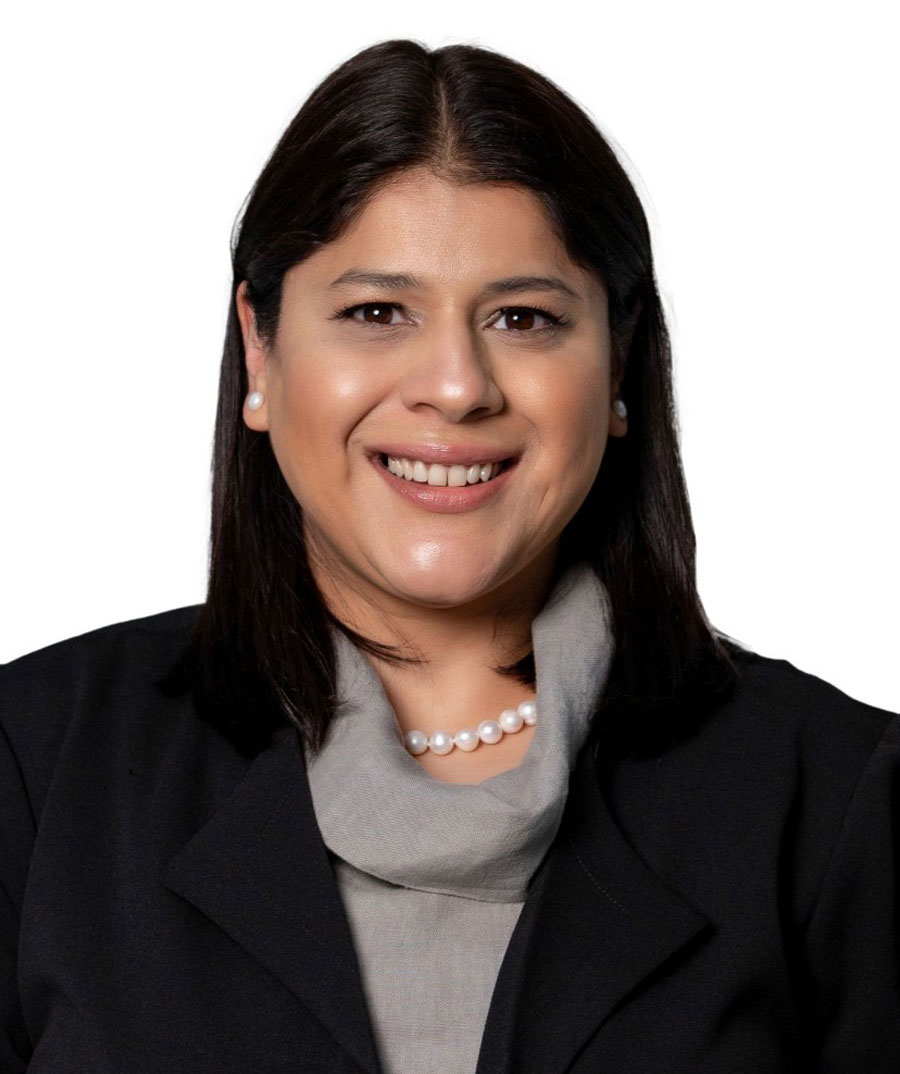WELLINGTON COUNTY – It’s daunting – sometimes overwhelming – and it takes thick skin and comfortable shoes.
But running for political office is extremely rewarding, a panel told the 160 people who signed up for the first session of Municipal Campaign School on Nov. 10, a joint session of campaign schools in Guelph, Wellington and Oxford counties.
Four women who have run for office shared their experiences during the 90-minute virtual session. They included:

AISHA JAHANGIR
– Aisha Jahangir, who ran federally as the Guelph NDP candidate but did not win;

KATE MACNAUGHTON
– Kate MacNaughton, a councillor in Prince Edward County;

ELIZABETH QUINTO
– Elizabeth Quinto, who ran federally as the Oxford County Liberal candidate but did not win; and

KAREN REDMOND
– Karen Redman, the Regional chair in Waterloo.
The event, emceed by Lindsay Wilson, of Oxford County, and moderated by Marva Wisdom, of Guelph, was intended to offer a glimpse into what it takes to run for municipal office.
With the next municipal election slated for October 2022, organizers hope to encourage a more diverse playing field.
MacNaughton said she grew up with an interest in local politics but never envisioned herself holding a seat.
“I had a profound sense of imposter syndrome” when first elected, she said. But she’s grown into the role and now recognizes the value she brings to discussion around the horseshoe.
Door-to-door canvassing was the thing she dreaded most at the outset of her campaign, but she grew to love it.
“I ended up addicted to it,” she said. “You get stories, you hear perspectives. It’s enriching, personal growth I didn’t expect but it’s very real.”
Redman suggested potential candidates should ask themselves three things – are you prepared to run, are you prepared to lose, and do you have any skeletons in your closet?
“You need to be at peace with your history,” she said. “Look inside yourself. Make sure you want to do it.”
Redman is also a fan of door-to-door campaigning and advises knocking on every door and not just the ones with favourable lawn signs.
“Once you are elected, you represent everyone,” she said.
She cautioned, “There are no front porch conversions, but you hear stories. And you can incorporate those stories because they are authentic and real.”
Jahangir said her team made the choice not to go door-to-door during the federal campaign this fall because of the pandemic. She used social media to reach the public and said it was very effective.
Quinto said the advice she was given was to listen at the door more than speak.
“I would spend 10 minutes talking to someone about golf, or gardening, or things that matter to them. At the end of the day, people want to know they have a representative who cares about them,” she said.
When it comes to campaign costs, Redman advised making a budget, asking others for money, and not to take out a loan to fund your campaign.
And if you get elected, “be prepared for meetings,” she said. “Do your homework.”
But ultimately, don’t run unless you’re going to have fun.
“You will meet some amazing people. And campaigning is a great way to lose 6 to 8 pounds,” she said with a laugh.
Quinto said election signs are important. People need to see your name and face.
“If you have name recognition, you don’t need to spend as much,” Quinto said. “But for a newbie, you have to put yourself out there.”
Jahangir said she’s terrible at asking for money.
“The first time (running for school trustee) I spent a significant amount myself. With the federal election, team members do the fundraising,” she said, which was a relief for her.
All the panellists spoke about how much they gained by running – even those who didn’t win.
“I really learned about my community,” Quinto said, adding she also built relationships and made some key connections. “I would run again.”
Curt Hammond is the behind-the-scenes guy with the Centre Wellington arm of Municipal Campaign School and he was pleased with the turnout and the engagement from the audience.
“It takes a long time to get ready for a campaign,” he said. “You don’t want to wait for March. You need to get planning and thinking about it now.”
The first session was broad and general, but Phase 2 involves in-person training and will take a deeper dive into topics like finances, knocking on doors, how to handle debates, and working on messaging.
Phase 3 is the mentoring program, where registrants will be paired with elected officials or those with experience campaigning for one or two hours a month.
“In Wellington County we need more diverse voices at council. That’s my own personal motivation for doing this,” Hammond said.
He said Wellington County councillors Mary Lloyd and Diane Ballantyne have also been working behind-the-scenes on the programs. Neither had any training before they entered politics and it was a bit like being thrown to the lions.
“That’s why they are giving their time to this,” he said. “They have both been great guides to me locally.”
Hammond noted that most of the seven municipalities in the county, and county council itself, are comprised mainly of white men, which means “we are not representing the community to the fullest. It’s not a good way to govern.”
There’s still time to join the program, Hammond said, and for elected officials to sign up to be mentors.
The panel discussion is available to view at municipalcampaignschool.ca; that’s where you can add yourself to the mailing list as well and receive more information about campaign school.
Phase 2 will roll out early in the New Year and Phase 3 will begin sometime in March.
Hammond said they will have to charge for future sessions but he’s working to keep costs low, so they don’t become another barrier for those considering running.
There’s a lot to think about when considering running for office.
“There will be a learning curve,” Hammond said. “Our goal is to shorten that learning curve and set them up for success.”




